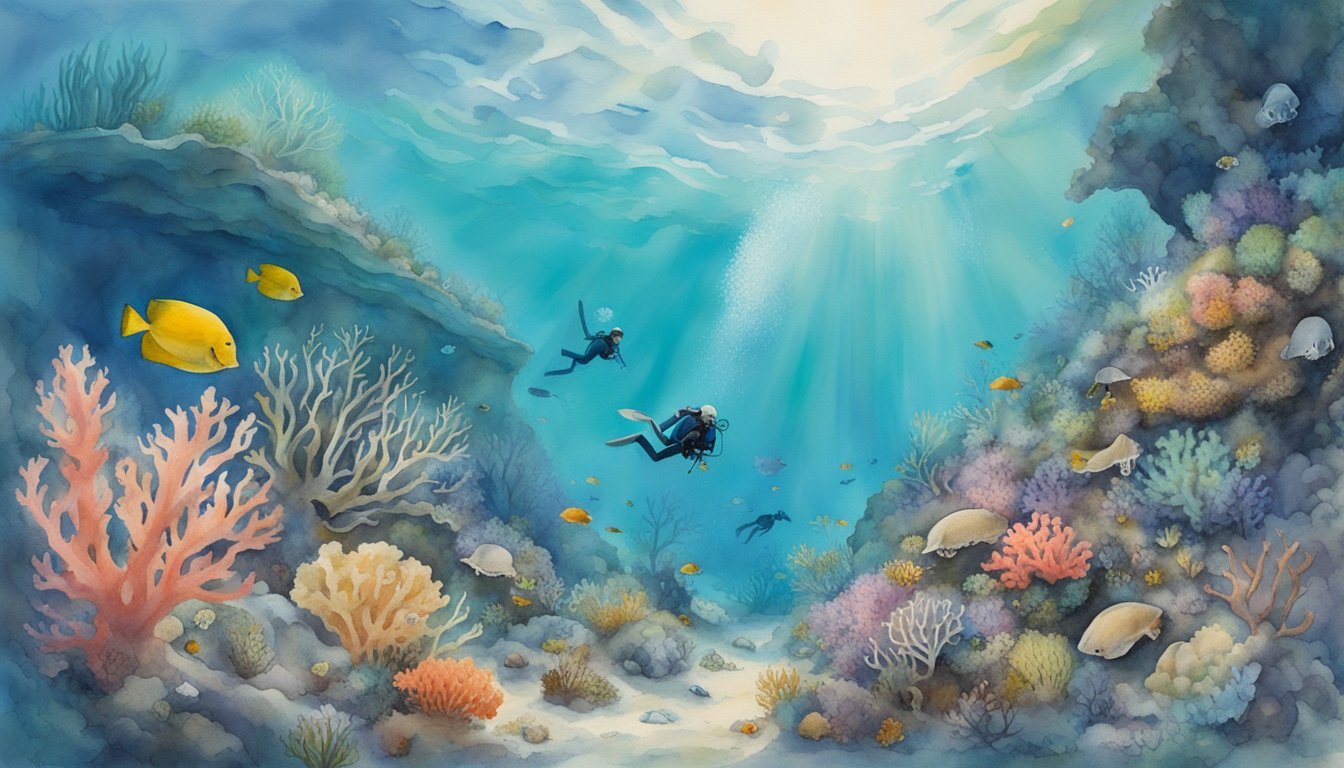Understanding Coral Reef Decline
Coral reefs, often referred to as the rainforests of the sea, are facing unprecedented decline due to multiple stress factors, including climate change and pollution, which leads to events like coral bleaching. These declines have significant ramifications for marine biodiversity and human economies.
The Science of Coral Stress and Bleaching
Coral bleaching occurs when corals are stressed by changes in conditions such as temperature, causing them to expel the symbiotic algae living in their tissues. Without the algae, the coral loses its major source of food and turns completely white. This bleaching does not mean the coral is dead, but it is under severe stress and is at a higher risk of dying. Ocean heat waves driven by global warming have prompted mass bleaching events, which may become more frequent and severe.
Contributing Factors to Coral Damage
Coral reefs are affected by a variety of factors, both global and local. Climate change leads to warming waters and ocean acidification, both of which can cause physical and chemical stress on corals. Other factors include pollution, overfishing, destructive fishing practices, coastal development, and disease. These factors can damage the delicate calcium carbonate structure of the corals, leading to reduced biodiversity and reef function.
Ecological Impact of Declining Reefs
The decline of coral reefs has profound effects on marine life and human societies. As coral reefs die, the biodiversity they support also faces a threat, considering reefs are home to about 25 percent of all marine species. Moreover, coral reefs buffer shorelines against waves and storms, providing protection for coastal communities. The loss of coral reefs also has economic implications, as they contribute to fisheries and tourism industries. Declining health of coral reefs is a clear indicator of the broader health challenges facing marine environments globally.
Efforts Towards Coral Conservation

Intensified global efforts are underway to combat the decline of coral reefs, with significant initiatives that aim at restoring and safeguarding these valuable ecosystems. These efforts involve a blend of restoration projects, international cooperation, and sustainable practices to ensure that the reefs continue to support biodiversity and provide benefits to human societies.
Restoration and Recovery Initiatives
Initiatives like the NOAA’s efforts to restore coral reefs focus on rebuilding the structure and function of damaged coral ecosystems. Projects often involve rearing corals in nurseries and transplanting them to degraded areas, such as those in the Florida Keys and the Caribbean. Another aspect includes enhancing coral resilience by directly addressing thermal tolerance, which can help corals survive marine heat waves attributed to the fourth global bleaching event.
Role of Global and Local Entities
Local governments and international bodies such as the International Coral Reef Initiative play a critical role in coral conservation. They formulate policies that address overfishing, implement protected areas, and regulate activities that affect reef health. In areas like the Great Barrier Reef, management strategies integrate scientific research with traditional practices to improve the sustainability of these regions. Moreover, global efforts are geared towards reducing greenhouse gas emissions to limit climate change, a principal threat to coral ecosystems worldwide.
Promoting Sustainable Practices
Sustainable practices are essential in maintaining the balance of nutrients in coral reef areas and ensuring that they continue to be a reliable food source. These practices include promoting sustainable tourism and fishing to protect livelihoods and prevent disaster. For example, the establishment of marine protected areas in various parts of the world, like the Indian Ocean and Bahamas, helps to safeguard these ecosystems and the diverse marine life they support. Sustainable practices also encourage local communities to engage in activities that do not harm the reefs, fostering a collective responsibility for the preservation of coral reefs.

